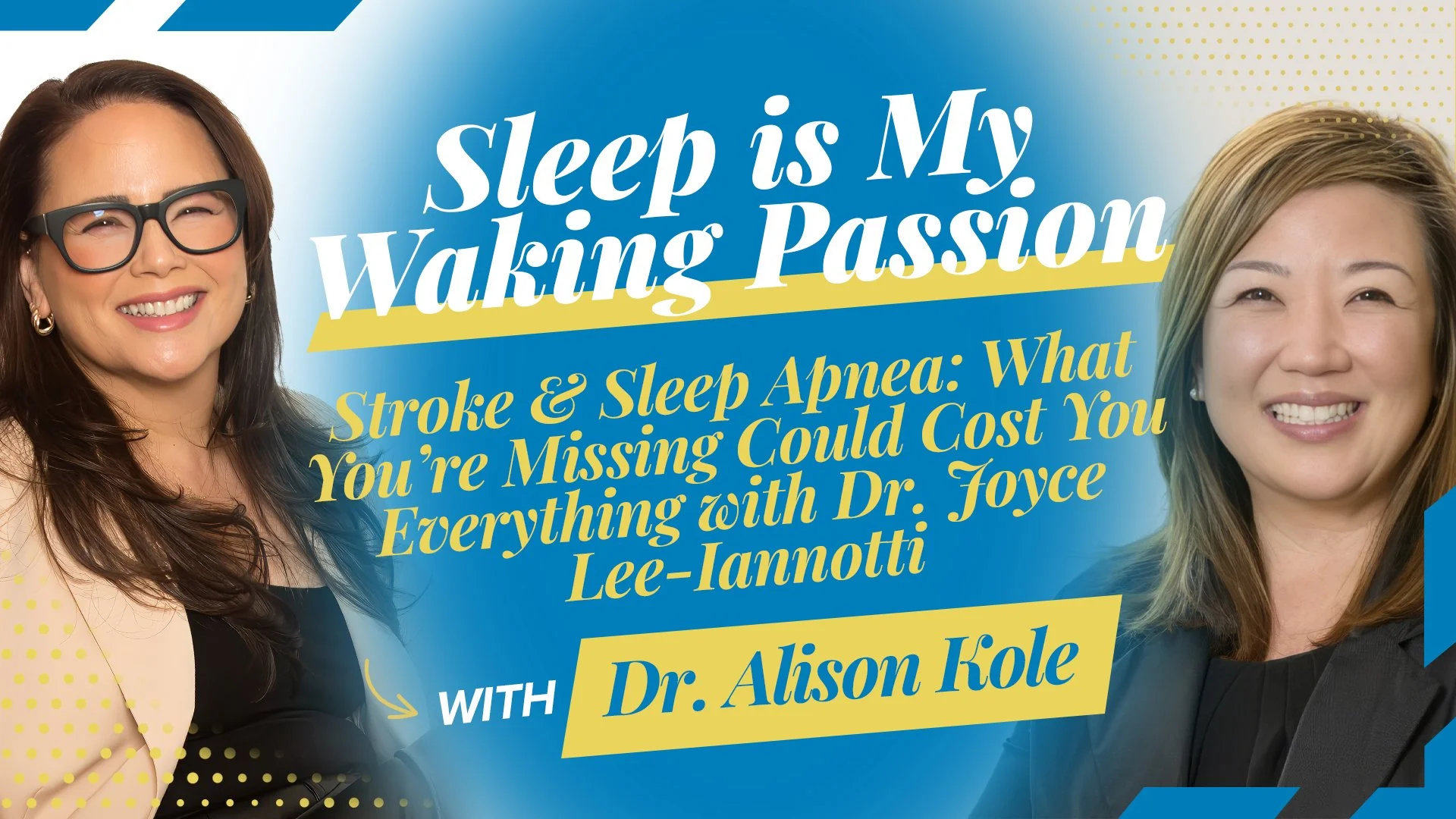The Silent Killer No One Talks About: How Sleep Apnea Causes Stroke
When most people think about a stroke, they imagine it arriving out of nowhere—a terrifying moment when your speech slurs, your face droops, or your body simply stops responding. A sudden assault on the brain. Time is brain. And every second lost can mean millions of brain cells gone.
But what if the path to that stroke started not in an emergency room, but in your bedroom?
That’s the shocking truth—and the story medicine hasn’t told loudly enough. Obstructive Sleep Apnea (OSA), often dismissed as "just snoring," is one of the most overlooked drivers of stroke.
Stroke: The Devastating Brain Attack
Every year, more than 700,000 people in the U.S. have a stroke, and 150,000 die from it. Worldwide, it ranks as one of the top killers and is a leading cause of disability. It doesn’t just happen to the elderly—it’s striking younger men and women, sometimes in their 30s, often fueled by lifestyle stress, poor sleep, and yes, even energy drinks.
Ischemic strokes—the clotting kind—make up about 85% of cases, while hemorrhagic strokes, caused by bleeding in the brain, account for the rest. Both can be devastating. Both can be life-ending. And here’s the part people miss: both can be fueled by sleep apnea.
Sleep Apnea: Suffocating Your Brain—Night After Night
OSA isn’t just noisy snoring. It’s suffocation in real time. Your airway collapses, your oxygen drops, your heart and brain are starved of what they need most: air. It’s silent and it’s deadly.
Here’s what the science shows:
Sleep apnea is an independent risk factor for stroke. The risk triples even if you don’t have high blood pressure, diabetes, or high cholesterol.
Severe untreated apnea can trigger dangerous spikes in blood pressure—sometimes from a calm 120 up to 230—in the middle of the night.
It can set off atrial fibrillation (AFib), a heart rhythm disorder that dramatically increases stroke risk.
And for those who say: “But I feel fine,” here’s the kicker—sleep apnea is suffocating your brain and body whether you wake up refreshed or not.
The Evidence: Treating Sleep Apnea Prevents Stroke
The good news? We’re not powerless. CPAP therapy—the gold standard treatment for sleep apnea—doesn’t just improve sleep; it protects your brain. Studies following patients for 5 and even 10 years found that those with sleep apnea who used CPAP consistently were far less likely to suffer another stroke.
Dr. Joyce Lee-Iannotti, a neurologist and sleep specialist at Barrow Neurological Institute, put it plainly:
“Obstructive sleep apnea is as strong a risk factor for stroke as smoking or diabetes. When we treat apnea, we can change the trajectory of a patient’s life.”
Even more powerful—patients who struggled with migraines or heart arrhythmias often saw them fade or vanish once their sleep apnea was treated. Oxygen to the brain really does change everything.
Why We’re Missing It (And Losing Lives Because of It)
For decades, most of the research dollars went into heart disease, not brain health. Sleep apnea is still underappreciated as a neurological risk factor. And culturally, many dismiss it, especially in communities where being lean or young shields you from suspicion.
But thin people get it. Women get it. Asian populations, with different facial structures, are particularly predisposed. And yet, they are often overlooked, with devastating consequences.
The Takeaway: Stroke Prevention Starts Tonight
If you’re snoring, gasping, waking tired, or leaning on energy drinks to survive your day—it’s not just “bad sleep.” It could be a ticking time bomb.
Stroke doesn’t just steal years from your life. It steals quality of life—your independence, your memory, your ability to move or speak.
So here’s the message worth tattooing on your brain: Treating sleep apnea is treating stroke prevention.
Every night you sleep with untreated apnea is another night of suffocating your brain. Every night on CPAP or another therapy is another investment in your longevity and your brain health.
Because a long life only matters if you can actually live it.
I recently sat down with Dr. Joyce Lee-Iannotti to discuss this topic on the Sleep Is My Waking Passion™ podcast. For the full conversation and more insights, listen to the episode here.
Subscribe to my YouTube channel here. Also available on Apple Podcasts & Spotify.
For more sleep tips, advice, and solutions, sign up for my monthly newsletter below, where we help you get the rest you deserve!
